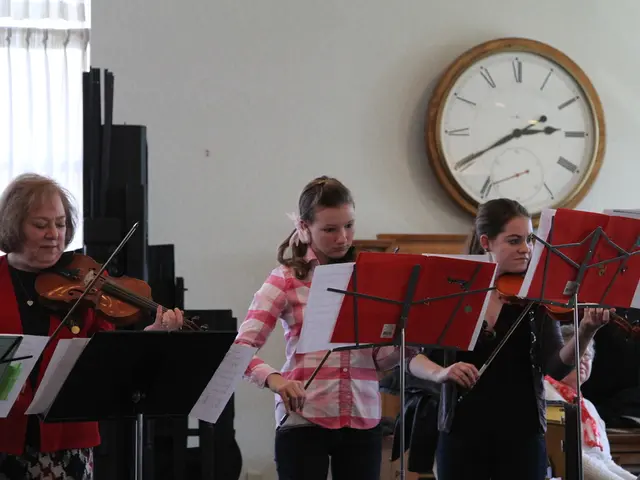Digital Asset Disputes: The Question of Rightful Ownership in a Child's Cryptocurrency Wealth
In the digital age, crypto assets have become a new frontier for financial investments. For parents who wish to introduce their children to this decentralized world, careful planning and thoughtful guidance are essential. By combining secure tools, clear rules, and gradual education, parents can make crypto custody a safe, educational, and even fun experience for kids.
Firstly, it's important to understand the difference between hot and cold storage wallets. Hot wallets, connected to the internet, are more vulnerable to hacks, while cold storage wallets, offline, are safer but less accessible. A balanced approach that uses both types can provide an optimal solution.
Crypto custody involves adults managing digital assets on behalf of children while adhering to legal requirements. Informal custodianship refers to parents managing assets without legal oversight, while formal fiduciary obligations require adults to act in the child's best interest, sometimes under court supervision. It is crucial to document access and ownership of crypto assets clearly, keeping records of who controls each wallet, the purpose of the account, and any legal arrangements.
Platforms like EarlyBird and Bitpanda allow parents to purchase and hold crypto in a child's name, control the keys, and manage accounts safely. Reliable custodial platforms with strong security protocols, clear rules for minors, and features like multi-signature wallets are essential for ensuring the safety of your child's assets.
Balancing accessibility and security is crucial when managing a child's crypto. Small amounts of crypto can be ensured to be passed down safely or become accessible at a specific age using smart contracts, time-locked wallets, or wills. Backup and emergency plans should be in place, such as multi-signature wallets, offline storage, or digital estate tools, to protect the child's assets from accidents, loss, or unexpected situations.
As children grow and become more responsible, they can be gradually educated about the basics of wallets, transactions, and digital responsibility. Minors cannot legally open exchange accounts or use decentralized finance (DeFi) platforms due to their inability to enter financial contracts.
In Germany, platforms offering custodial crypto accounts suitable for secure management by children are limited, but prominent regulated providers include the BSDEX Wallet and Bison App, both operated by entities affiliated with Börse Stuttgart under BaFin supervision. These platforms offer custodial wallets with high security standards, although explicit services tailored for children or minors are not specifically indicated in the available information.
Careful planning, legal, technical, and ethical, can turn potential headaches into opportunities in navigating crypto custody for children. Establishing clear agreements and planning ahead with legal or digital tools can prevent conflicts and ensure the child's interests remain protected in case of family disputes or inheritance planning.
In the U.S., UTMA/UGMA accounts designed for minors are used, while the European Union has emerging regulations like MiCA defining custodian responsibilities. Asia has varying rules from strict restrictions to flexible parental management.
Remember, a private key, a secret PIN-like code necessary to access crypto, is crucial. Losing it can result in permanent loss of access to the crypto. With thoughtful guidance and responsible crypto custody, children can inherit, access, and manage digital assets safely, building financial literacy and confidence in a decentralized world.
Read also:
- Experiencing Life's Variety Firsthand: Gaining Insights from Life's Broad Spectrum of Experiences
- Budget Alterations Made to 2023 Toyota GR Corolla After 4,500 Miles, with a Cost of $38 for Smoothing Out the Rough 1-2 Shift
- Strategies for Keeping Work Reasonable and Rewarding for those with Autism and ADHD
- Steady Expansion Projected for Artificial Intelligence in Escalator Maintenance, with a Forecasted Growth Rate of 40.2%







